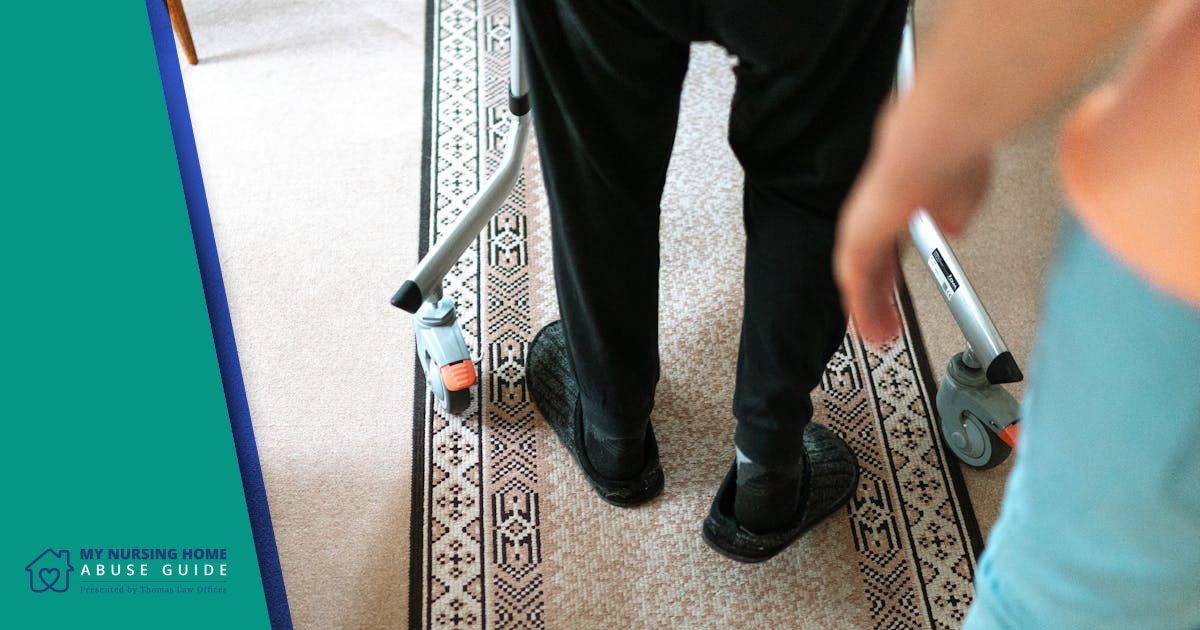Your Guide to Nursing Home Abuse & Prevention
Millions of elderly adults live in nursing home facilities.
Every one of them deserves to feel safe, protected, and respected.
Millions of elderly adults live in nursing home facilities.
Every one of them deserves to feel safe, protected, and respected.

When families place a loved one in a nursing home, they expect that facility to provide consistent, safe, and compassionate care. Unfortunately, safety issues and injuries in long-term care facilities can and do happen.
To reduce risks and maintain standards, federal and state authorities conduct regular inspections and audits of nursing homes. These evaluations are designed to identify violations, promote compliance, and ensure residents are not placed in harm’s way.
But how often are these audits performed, and what do they actually involve?
At the federal level, nursing homes that receive funding from Medicare or Medicaid are required to follow regulations enforced by the Centers for Medicare & Medicaid Services (CMS).
This includes mandatory health and safety standards. To ensure these facilities comply, CMS conducts inspections, also known as “surveys,” at least once every 15 months.
These surveys are unannounced and carried out by state agencies acting on behalf of CMS.
The 15-month timeframe is the maximum allowed between surveys, but CMS aims for an average interval of 12 months between inspections for each facility. This rolling schedule ensures consistent oversight while allowing inspectors to prioritize high-risk locations or respond to complaints.
When inspectors arrive at a nursing home, they review a wide range of safety, health, and quality-of-life factors. The process includes interviewing residents, staff, and family members; reviewing care plans and medical records; and directly observing interactions and facility conditions.
Key areas evaluated during a nursing home safety audit include:
Surveys aim to determine whether residents are receiving appropriate care and living in a safe, respectful environment. Facilities that fall short face consequences ranging from correction plans to fines or, in severe cases, decertification.
Although regular surveys happen at least once every 15 months, some nursing homes might be audited more often. There are a number of factors that can prompt an additional inspection or accelerate the timeline.
These include:
In these cases, surveyors may arrive unannounced for a targeted inspection focused on the specific concern. These focused surveys are separate from routine reviews and may occur at any time, including nights or weekends.
In addition to federal surveys, states have their own rules for monitoring nursing homes. Some states impose more frequent audits or additional requirements beyond those mandated by CMS.
For example, a state health department might require quarterly reviews of infection control or medication practices, especially in facilities with past infractions.
State inspectors may also follow up on anonymous complaints or conduct investigations related to licensing, facility expansion, or staffing changes. The dual oversight from both federal and state levels helps strengthen the accountability system and protect residents more thoroughly.
When a nursing home fails to meet safety standards during an audit, it may face a variety of penalties depending on the severity and scope of the violation. Some issues can be corrected through a written plan of correction, while others may lead to civil monetary fines or enforcement actions like denying payment for new admissions.
Repeated or severe violations, especially those that cause actual harm to residents, can lead to more drastic consequences, including facility closure or removal from Medicare and Medicaid programs.
Facilities placed on CMS’s Special Focus Facility list are subject to heightened scrutiny and more frequent inspections until improvements are made.
If your family is considering and comparing nursing homes, the results of safety audits and surveys can offer crucial insight.
CMS publishes these findings on its Care Compare website, where facilities are rated based on health inspections, staffing, and quality measures. Families can compare multiple homes, review recent violations, and make informed decisions.
Even after admission, it’s important for families to stay engaged. If you notice signs of neglect or feel something is wrong, don’t hesitate to ask questions or file a complaint. The audit system works best when residents and their loved ones participate in holding facilities accountable.
While government audits are an essential tool, your family can also take steps to ensure that your loved ones are safe in a nursing home. Seek a connection with staff members, visit as regularly as possible, and keep a close eye on any changes in behavior, cleanliness, or care.
Here are a few practical ways families can stay involved:
Taking these proactive steps can help prevent issues from escalating and show the facility that your family is paying attention.
Nursing homes are audited for safety at least once every 15 months under federal law, with many facilities undergoing inspections more frequently due to complaints or past issues.
These are critical steps in ensuring that our loved ones are protected from harm. While oversight from federal and state agencies is vital, families also play a key role in holding care providers accountable. Understanding how the audit process works, what triggers additional reviews, and how to respond to problems empowers families to advocate for safer, higher-quality care.
At My Nursing Home Abuse Guide, we offer numerous helpful resources that provide valuable information on how to optimize your loved one’s stay in an eldercare facility, as well as guidance on what to do when something goes wrong.
Reach out today and let us know how we can help.
This website was created and is maintained by the legal team at Thomas Law Offices. Our attorneys are experienced in a wide variety of nursing home abuse and neglect cases and represent clients on a nationwide level. Call us or fill out the form to the right to tell us about your potential case. We will get back to you as quickly as possible.
866-351-2504